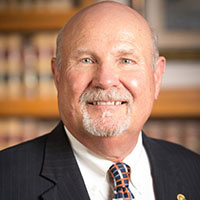Washita DUI-DWI Lawyer, Oklahoma
Sponsored Law Firm
-
 x
x

Click For More Info:
-
The Handley Law Center
111 South Rock Island P.O. Box 310 El Reno, OK 73036» view mapAccident & Injury, Wills & Probate, Criminal Taking Care Of You
At The Handley Law Center we get it. We represent clients throughout Canadian County and across Oklahoma in a wide variety of legal areas.
800-714-5951
Not enough matches for Washita DUI-DWI lawyer.
Below are all Washita Criminal lawyers.
Fletcher D Handley
✓ VERIFIEDCriminal, Accident & Injury, Divorce & Family Law, Estate, Oil & Gas
Fletcher Dal Handley, Jr., is a civil justice attorney with The Handley Law Center in Oklahoma. His practice is focused on Personal Injury Law, repres... (more)
Robin Lee Rochelle
Estate, Divorce & Family Law, Criminal
Status: In Good Standing Licensed: 35 Years
Eddie Dewayne Valdez
DUI-DWI, Criminal, Consumer Protection, Indians & Native Populations, Personal Injury
Status: In Good Standing
Michael Sidney O'brien
Traffic, Criminal, Civil Rights, Personal Injury, DUI-DWI
Status: In Good Standing
 Fletcher Dal Handley El Reno, OK
Fletcher Dal Handley El Reno, OK Practice AreasExpertise
Practice AreasExpertise

